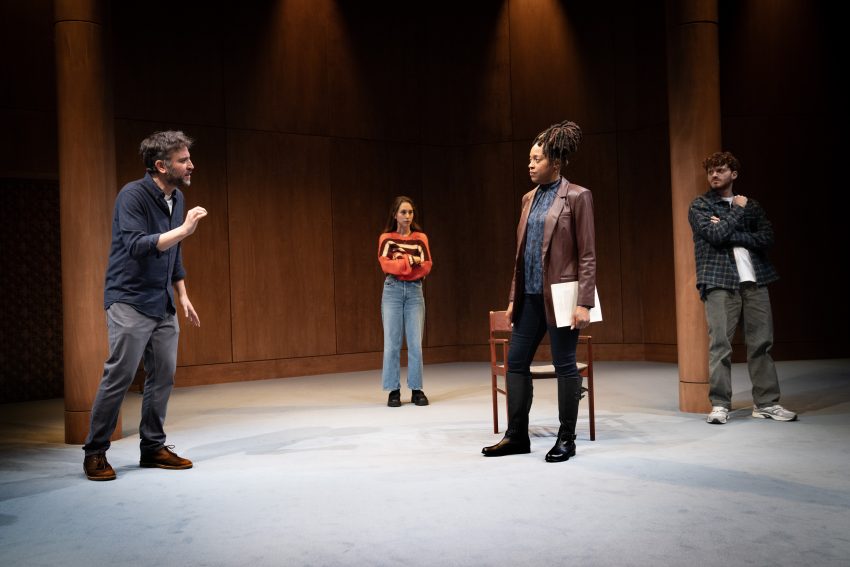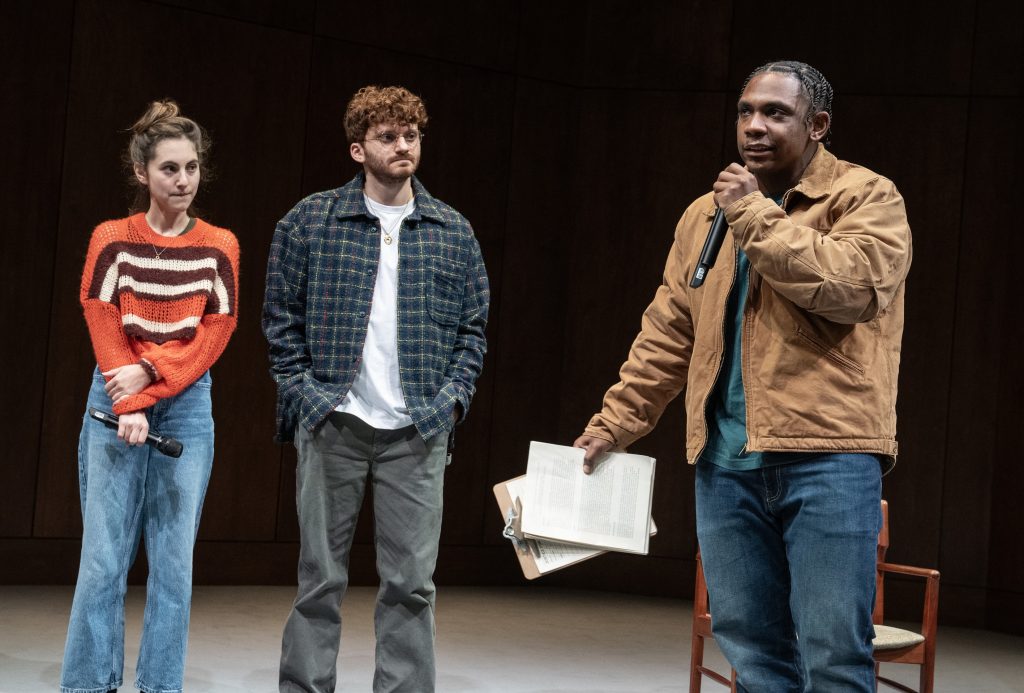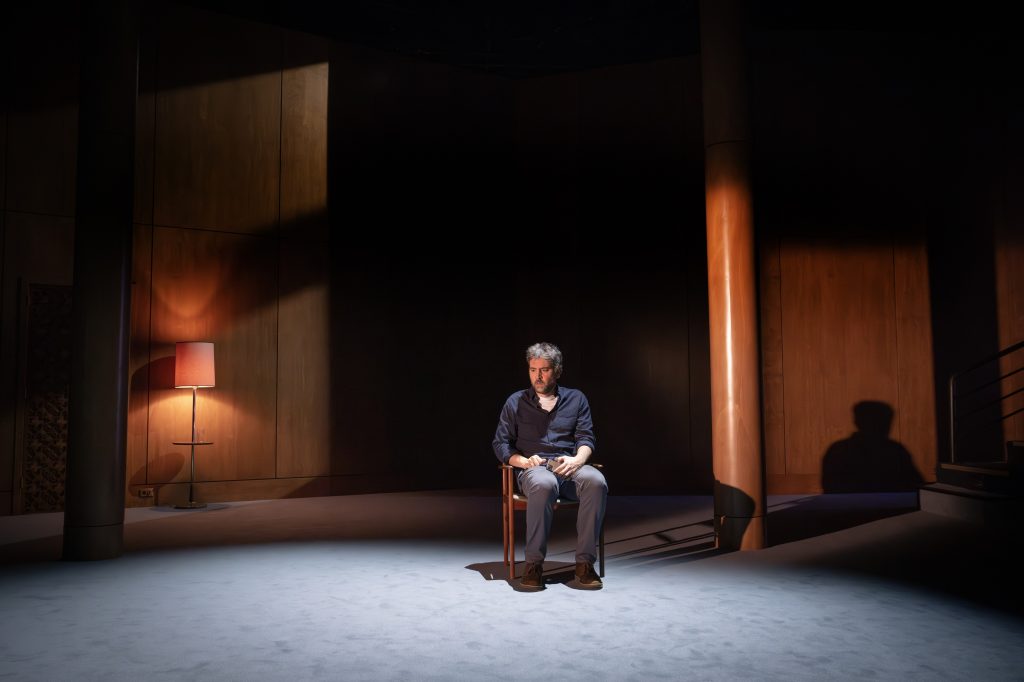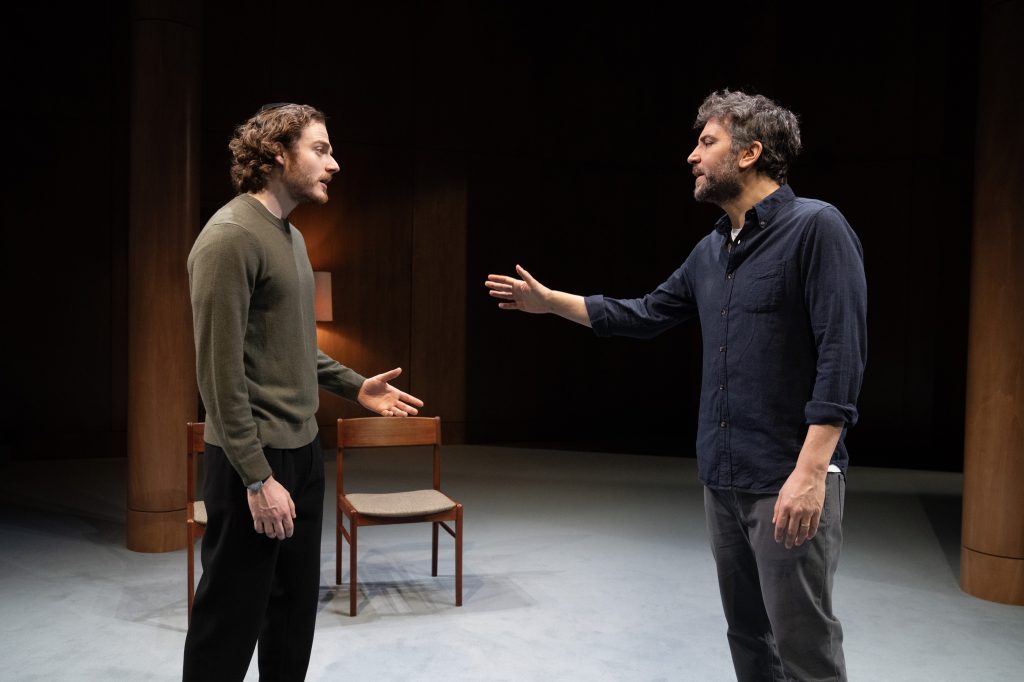
“The Ally” Finds Peace Amidst Debate—at The Public
Millennial Notes
Itamar Moses Asks: Where’s the Line Between Personal & Political?
by Beau McGlasson
When intermission begins and the audience discussions are as loud as the applause, you know the play works. In “The Ally” at the New York Public Theater, Itamar Moses invites us to consider our truths, demons, and biases before casting judgment.
Using charged incendiary confrontations, Moses uncovers the conflict between truth and personal bias on the Israel and Gaza war. Moses’ whip-smart dialogue engages us with provocations, prompting thoughtful debate.
“The Ally” refuses to pull its punches. Set in September 2023, Moses invites the audience into conversation and encourages self-reflection on recent and current opinions. In the present moment, the debates struggle with the audience’s knowledge. While “The Ally” uncovers emotional truths, the unspoken hard facts leave an unfinished feeling.

Conversations become debates as the Israel/Palestine conflict takes center stage. There’s little room to breathe when Baron (gripping Elijah Jones), a Black former student, asks writing professor Asaf (energetic Josh Radnor) to sign a petition. The document explicitly connects police brutality in the U.S. to the war in Gaza.
Asaf struggles with his Jewish identity because he disdains the brutal Israeli military attacks. “The Ally” dives head-first into the muddy waters of racism, antisemitism, and social inequality. He becomes increasingly anxious, he listens to students, his wife, his ex, and a rabbi, all with different viewpoints on the conflict.
Asaf listens to Baron whose cousin was murdered by police. But Asaf has doubts about connecting police violence with the atrocities in Gaza. Asaf’s reservations are the internal and external drama of the play.

Moses’ light tone keeps “The Ally” from feeling heavy. And Radnor imbues his scenes with well-meaning goofiness. Asaf explains that his Jewish upbringing in Berkeley is the “acoustic guitar version of Judaism.” When his wife, Gwen (wonderful Joy Osmanski) says that the Jews are his tribe, he hesitates a beat and replies “Well, 12 tribes.”
Lila Neugebauer directs the debates with a sure hand. When Asaf gets irrational, he bursts out: “My feelings about Israel are the reasonable ones!” She also finds space for him to reflect on his own bias.
Act One ends with a brutal monologue from Reuven (fiery Ben Rosenfield), a passionate, religious Jewish student. Reuven asserts that Asaf’s support of Palestine is merely “public self-flagellation, a performance of virtue for the goyim.” Reuven claims that such views are “outside of legitimate opinion.”

We see conflicting opinions flash across Radnor’s face. Can he hold negative opinions of Israel while still being fully Jewish? Can Asaf find peace and feel pride as a Jew while uncovering the terrible facts?
When Asaf reveals his hesitancy to criticize Israel, Arab student Farid (gut-wrenching Michael Khalid Karadsheh) vehemently argues against him. Through tears, Farid accuses: “There is no justification for the subjugation of my people.” We feel the pain in his words. The audience falls silent—with an occasional sob.
“The Ally” boasts outstanding actors delivering heartfelt argument—as they hash it out onstage. Moses’ battling characters unearth precious truths and lies. It’s a stirring and sometimes scary evening—just what we expect from The Public Theater. We need more of this debate off-stage, too.
“The Ally” by Itamar Moses, directed by Lila Neugebauer, scenic design by Lael Jellinek, costume design by Sarita Fellows, lighting design by Reza Behjat, at The Public Theater, New York. Info: publictheater.org – to March 17, 2024.
Cast: Cherise Boothe, Elijah Jones, Michael Khalid Karadsheh, Joy Osmanski, Josh Radnor, Ben Rosenfield, and Madeline Weinstein.
Banner photo: Josh Radnor, Madeline Weinstein, Cherise Boothe, & Michael Khalid Karadsheh. Photos: Joan Marcus